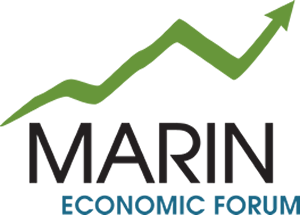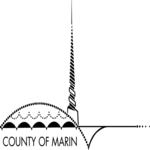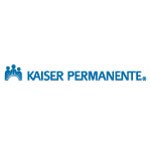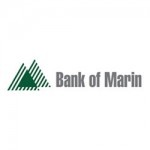Sonoma County Go Local extends business pandemic help program into 2021; Marin County plans recovery strategy
Sonoma County GO LOCAL announced June 1 it’s extending another round of coronavirus pandemic relief, granting businesses matching funds for advertising.
“There are a lot of businesses now holding back from advertising because of financial constraints, but they need to promote,” said Janeen Murray of GO LOCAL, a Sonoma County business advocacy group.
The timing is important, since the U.S. Small Business Administration also reported recently that it is closing the Paycheck Protection Program. PPP funding has propped up small businesses across the nation with nearly $800 billion in economic relief designed to allow them to keep their payrolls afloat. More than 8 million jobs were saved in the program, the SBA claimed.
Last year, GO LOCAL gave Santa Rosa-based Cheryl Teach Music owner Cheryl Franklin, a 54-year veteran to music instruction, a $1,000 grant, a fund she matched with Go Local. The advocacy group is a membership-based organization that assists small businesses with their advertising efforts.
‘Uncertainty’ flourishes among North Bay business as June 15 California reopening nears
June 15 may be the date the Gov. Gavin Newsom has said many coronavirus-related restrictions on the state economy would be loosened, but how businesses must deal with customers and workers as the pandemic fades is still a mystery, one with conflicting federal, state and county policies, as well as stringent requirements and recommendations.
Phase 2 of California’s reopening plan, called Beyond the Blueprint for a Safer Economy, brings new rules designed to relax restrictive policies as counties move away from the four-color tier system in place since late August. On this date, capacity and distancing restrictions will be lifted for most businesses and activities. Large-scale indoor events will have vaccination or negative test requirements for attendees through at least Oct. 1, and there is industry guidance designed to help businesses reduce risk.
This phase comes with industry-specific guidelines that must be followed. Businesses also must prepare site-specific protection plans and conduct a risk assessment for each business practice, using approved business-specific protocols as a guide for performing the assessment.
“Businesses don’t like uncertainty. Today, there is more uncertainty than clarity.” —Mike Blakeley, CEO, Marin Economic Forum
Marin worker shortage complicates economic rebound
Marin businesses, like businesses in other regions of the nation, are being hindered in their efforts to recover from the pandemic-induced recession by a shortage of available workers.
“The trend really is that employers are going to continue to struggle to hire while some of our labor force sits on the sidelines waiting for the right time to come into the market,” Mike Blakeley, chief executive of the Marin Economic Forum, said at the organization’s briefing in May.
Joanne Webster, chief executive of the San Rafael Chamber of Commerce, said “employers are scrambling to fill positions and working hard at keeping the ones they have.”
“In many sectors, workers are not 100% comfortable coming back to work yet,” Webster said. “The pandemic also caused many employees to re-evaluate their past employment, and they either decided to change careers or moved for personal reasons.”
Marin firm aims to nurture North Bay startup businesses
Marin Sonoma Impact Ventures, a new company based in Corte Madera, wants to make it easier for North Bay entrepreneurs to create startups.
Zachary Kushel, the founder, says that besides making money, the company has a social purpose: promoting economic development throughout the region.
“We are a for-profit enterprise but we are a social enterprise, which means we have a dual mandate,” said Kushel, who runs the business out of his home.
Kushel says Marin and Sonoma counties are already generating a fair number of startups and have the potential to produce many more, given the right stimulus.
Marin Voice: Supervisor, mayor plan for economic vitality amid pandemic recovery
There is a unique sense of place to Marin, a small-town charm that brings families together and the outdoors downtown.
Nowhere else can you enjoy a bike ride along the bay and a warm cup of coffee at your favorite mom-and-pop cafe before making your way west past the rolling hills and redwood giants to enjoy dinner and the sunset on the Pacific coastline.
Each city and town play a part in weaving the tapestry that makes Marin so appealing. Our economy reflects this vibrancy.
Marin has diverse businesses in ranching, agriculture, biotech, manufacturing, personal services, health and wellness, restaurants and retail, as well as regional and international tourism. Marin County’s economy is coming back. We face an important question: How can we partner together to promote equity, sustainability and shared community values?
Marin County’s economy will return, but so will its challenges
COVID’s impacts to businesses are well known. The slowing of the economy due to shutdowns caused great financial stress and the need to adapt business models. The future is unknown with the rise of remote work and uncertainty on how consumers will spend or travel in a post-COVID environment.
Here in Marin, the future may not be so opaque.
Our economy is largely oriented towards serving the local market. As we reopen and people get vaccinated, we anticipate demand to mostly return without major changes, though we do not know how long that will take.
That sentiment prompted me to revisit a major project MEF was implementing in late 2019/early 2020, which was disrupted by the pandemic, but not before a major phase of the project was complete.
Marin business survey finds dire pandemic outlook
More than a third of Marin County business owners polled in a recent survey said they have dipped into personal savings, racked up credit card debt or borrowed money from family members to keep their enterprises alive during the coronavirus pandemic.
The survey, which polled nearly 1,200 Marin business owners, highlights the dire financial situation for many companies after a year of lockdowns and restrictions, said Cynthia Murray, CEO of the North Bay Leadership Council. The survey was conducted in February by Keep Marin Working, a business advocacy group.
Editorial: Pandemic survival challenges Marin businesses
It’s not much of a surprise that our local economy has been rocked by a year of pandemic public health lockdowns.
For instance, think of those businesses — formal wear purveyors, caterers, rental firms and other businesses — that rely on weddings, proms and other such gatherings. The spread of COVID-19 essentially sidelined them, costing them a year of business.
What about restaurants that had to get by relying on takeout business — still only a fraction of the business that they had hoped to do during 2020?
There are many others, as reflected in the survey completed by Keep Marin Working.
Marin County’s economy will return, but so will its challenges
COVID’s impacts to businesses are well known. The slowing of the economy due to shutdowns caused great financial stress and the need to adapt business models. The future is unknown with the rise of remote work and uncertainty on how consumers will spend or travel in a post-COVID environment.
Here in Marin, the future may not be so opaque.
Our economy is largely oriented towards serving the local market. As we reopen and people get vaccinated, we anticipate demand to mostly return without major changes, though we do not know how long that will take.










